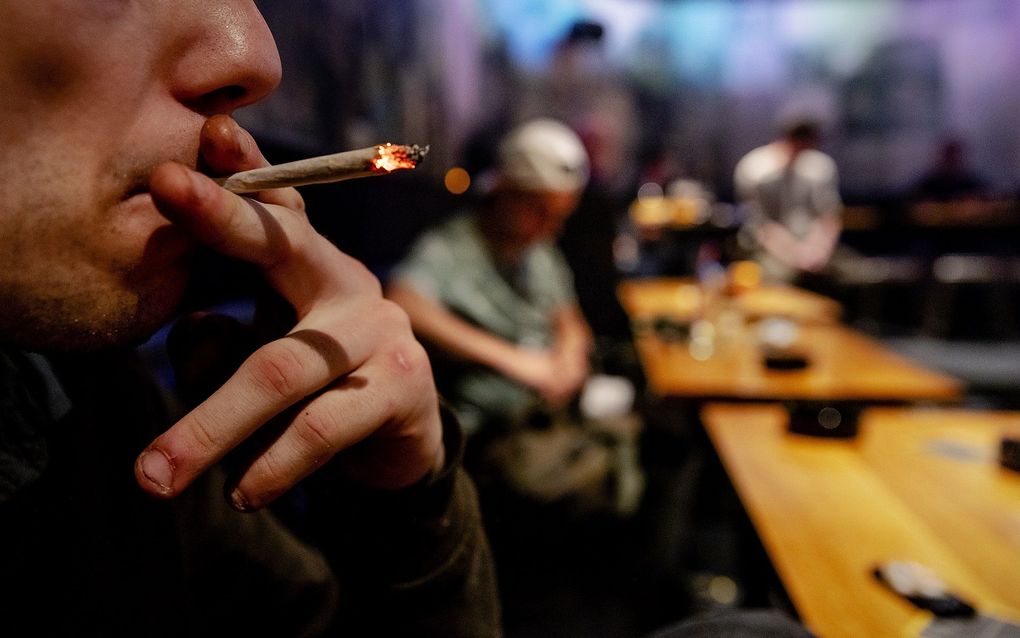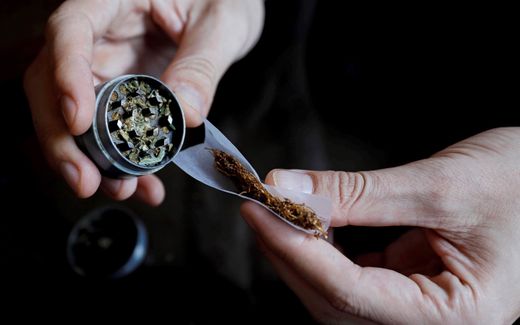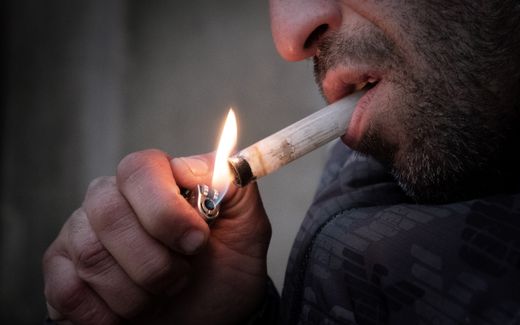Dutch Christian Union: No soft drugs before 21

A man smoking weed in a coffeeshop. Photo ANP, Robin van Lonkhuijsen
Western Europe
The Dutch coalition party Christian Union pleads for stricter regulations for buying weed and hash. Currently, people have to be 18 years to be allowed to purchase drugs.
On Wednesday, the Dutch Parliament debates the national drug-use policy. The cabinet wants to research whether the minimum age for tobacco can be increased to 21 years. Christian Union leader Mirjam Bikker finds it "unexplainable" that this is not the case for cannabis.
“Teens do not belong in a coffeeshop”, the new leader of the Christian Union argues, as reported by the Reformatorisch Dagblad. She points out that "blowing is addicting, bad for your health and disastrous for the development of young people." According to Bikker, increasing the minimum age will lead to fewer young people being confronted with weed. She reasons that also fewer of them will become addicted as a result.

It is uncertain whether the Dutch MPs will support Bikker's plan. In 2012, the Christian Union requested an increase in the minimum age for drug use. In addition, the party wants all coffee shops to close.
Despite the pleas of the Christian Union and the critical voices against legalisation of drugs, two Dutch municipalities are going to test regulated cannabis cultivation. Health Minister Kuipers said so in the debate on Wednesday.
Combat
The Netherlands has been known for its liberal policies on drug use for decades. Progressive parties, such as the D66, say restrictions on drugs do not help in the battle against crime. "More combat, more drug laws, more repression and more strong language will not make the difference", according to D66.
On the other hand, the Christian Union favours a very strict and limited policy on drugs. More prevention, higher sentences for drug criminals, and drug-free events are on their list of standpoints.
War on drugs
In 1971, the War on Drugs began in the United States, the Nederlands Dagblad wrote earlier. As a result, many died in the criminal circuit.

In 2011, UN Secretary General Kofi Annan declared this repressive policy useless. His idea was to legalise weed. The mayor of Amsterdam, Femke Halsema, supports this position. She even wants to legalise the hard drug coke. Currently, coffeeshops are allowed to sell cannabis, but not to purchase it.
However, using legalisation to uproot the criminal circuit is "childish wishful thinking", Dutch author Teun Voeten says. He wrote a book about the Dutch criminal world and drugs. Voeten points out that offering drugs via state channels does not eradicate the criminal circuit. The legally produced drugs will be more expensive, so that many people will revert to the illegal circuit. He points to the example of the United States, where some states legalised Marihuana. The result? "People find the legalised drug too expensive and not strong enough. They buy their desired product on the black market. The criminality only increased."
Related Articles






